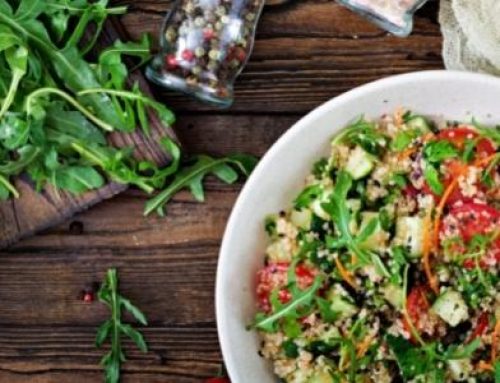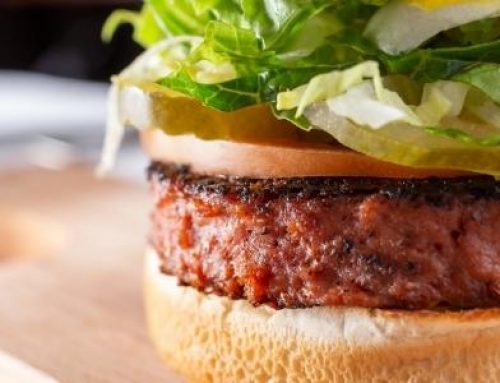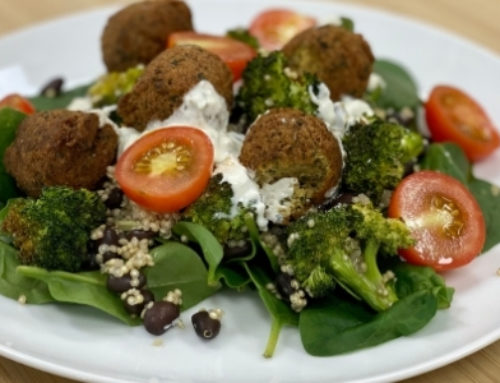
For most of us stress and food go hand-in-hand. It’s almost like a dysfunctional relationship. We know that the relationship is bad news, but for some reason we keep going back for more. When we are stressed out and need comforting, we turn to food to make us feel better. The problem is, the foods we turn to are not vegetable sticks. We turn to chocolate, ice-cream, biscuits, cakes, alcohol and Macca’s (and a lot of it too!). We turn to energy dense foods.
According to the Australian Stress and Wellbeing Survey in 2014, almost 1 in 7 adults report regularly feeling stressed. In this survey the main causes of stress were: financial issues, health issues and trying to maintain a healthy lifestyle.
You know that feeling of tightness in your chest, which makes you tense up and and get worried? That’s stress! When we are confronted with a stressful event, our body responds by releasing certain hormones, such as cortisol and adrenaline. When these hormones are released, we start to feel physical symptoms like tightness in the chest, an upset stomach, fatigue and heavy breathing.
Our physical reaction to a stressful event is a natural evolutionary response, which enables us to survive dangerous situations. But, even though our caveman days are long gone and the stresses in our life don’t usually mean impending doom, our bodies react the same! When stress is frequent and ongoing, our natural physical responses can impact our health, wellbeing, relationships and enjoyment. That’s when stress becomes a problem!
Not only has chronic and frequent stress been associated with the exacerbation of diabetes, depression, cardiovascular problems and digestive issues, stress can wriggle its way into your daily food and nutrition habits. Studies have found that at times of stress, the foods we turn to are more likely to be high in energy (especially refined sugars and fat). Why? Honestly, scientists are still arguing why. But what we do know is that after we experience a stressful event our body needs to replace the energy lost. Our appetite is often increased and food cravings become more intense. This is your body telling you to eat now, before another dangerous situation occurs!
So, being aware of not only how your body reacts to stress, but also how you manage stress is really important.
Here are my tips to help manage common stress habits:
Habit 1: Reaching for energy dense snack foods (or beverages!)
Problem: Do you come home from work after a long, stressful day and automatically reach for the first chocolate or salt covered food item in the pantry? You are not alone! It is well known that people with higher levels of stress are more likely to choose energy dense foods. This can contribute to weight gain and other health issues. And it’s so easy to do!
Tips: Be prepared. Have healthy snacks ready and waiting for you. That way you don’t even have to think about it. Snack foods don’t have to be boring! They can be as creative as you like. Check out our 5 Creating Cracker Toppings, or our Choc-Yoghurt Dipping Sauce for creative, delicious and fun snack ideas.
Habit 2: Skipping meals
Problem: How many of us, at work or at Uni, have missed a meal or two because we were too busy or too stressed to stop and eat? This can be problematic. Skipping one, two or even three meals, increases our likelihood of resorting to junk foods and then overeating them because we are starving! While junk foods might give you a quick burst of energy, it is short-lived. We can also get ourselves into an unhelpful cycle. We miss a meal, choose whatever is under $3.50 in the vending machine, eat a whole packet of snacks, get hungry again, wish you had more coins to have another packet of snacks and so on…
Tips: Try to eat regularly. Eating regularly throughout the day will help stabilise your blood sugar levels, preventing those slumps in energy. Try to notice how much you are eating, keep a food awareness journal to help you recognise when you are eating ‘just because’. Plan, prepare or buy snacks that come in individual serves. This will help you to keep a record of how much you’re having, and may encourage you to stop at 1 serve.
Habit 3: Binge eating
Problem: When you are feeling stressed, what is the first thing you turn too? Is it food? What food is it? When do you know when to stop? During times of stress it’s common to not notice when we are full, or when we have had enough. This can cause us to continue eating, even though we really are not hungry! It can also lead us to feel out of control and binge on junk foods.
Tips: Try and beat binge eating by being prepared with some healthy snacks and eating mindfully. Ask yourself ‘Am I really hungry? Do I need it now?’. Take some time to think whether you are eating ‘just because’ or if you are really hungry. If you are eating ‘just because’, why don’t you try to take a relaxing walk. Try some meditation and deep breathing or call a friend for a chat and coffee.
Habit 4: Couldn’t be bothered to exercise
Problem: When we are stressed and tired and think the world is against us, the last thing you want to do is get out of your pyjama pants and go to the gym.
Tips: Try mediation| running| jumping| skipping| whatever your fancy is. Just move. You will feel better for it. Exercise has been linked with reduced stress levels, and has an extra benefit of improving your fitness!
On a serious note, stress sucks! If you ever feel that stress is bringing you down, there are many avenues of support including Lifeline (13 11 14) which you can contact 24/7.
Breaking food and stress habits can be difficult and it takes time to change.
If you’d like further help with your nutrition please click below:
[hubspot type=cta portal=6159200 id=f2e3cfad-4716-4600-a44a-1a3d53c0a8bd]





